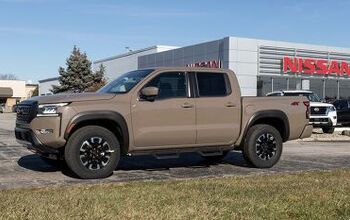GM's EVs Will Offer Bi-Directional Charging by 2026

General Motors has an exciting few years ahead of it, as the automaker plans several new EVs before the end of the decade. Starting in 2026, GM’s electric vehicles will offer a clever bi-directional charging function that allows them to act as backup home generators or emergency EV chargers for other drivers.
GM will kick off the initiative with the 2024 Chevrolet Silverado EV RST, which rides on its Ultium platform. Beyond functioning as a generator, the function will allow owners to move and store energy as peak pricing surges.
Other companies, including Hyundai and Kia, have developed similar tech for their EVs. GM’s approach is to build an ecosystem around its EVs, where the vehicle is at the center but does not present the entire value of the system. The automaker’s VP of charging and energy, Hoss Hassani, told Automotive News that GM’s “approach is very much an ecosystem approach. While the EV is at the center of the universe, it alone is not where all the value comes from, not for us as a business and not for the customer as an experience.
The automaker believes most early sales will come from markets where EVs have been growing faster than the rest of the nation, including California, Texas, and Michigan. Other automakers are coming around, with Tesla promising to roll the feature out by 2025.
[Image: GM]
Become a TTAC insider. Get the latest news, features, TTAC takes, and everything else that gets to the truth about cars first by subscribing to our newsletter.

Chris grew up in, under, and around cars, but took the long way around to becoming an automotive writer. After a career in technology consulting and a trip through business school, Chris began writing about the automotive industry as a way to reconnect with his passion and get behind the wheel of a new car every week. He focuses on taking complex industry stories and making them digestible by any reader. Just don’t expect him to stay away from high-mileage Porsches.
More by Chris Teague


































Comments
Join the conversation
Nobody cares. This is nothing more than a stupid gimmick. Rather than focusing on this crap, focus on things that people want. Price parity with ICE, range parity with ICE, and refill time parity with ICE.
Why would I want this? The power is out for an indefinite period of time, so I want a dead car too?
Is this going to be like their daytime running lights where only one side works, or did they wire it like the check engine light that never dies?
It's a value, full stop.
The question is more what's the premium, performance and proprietary setup of the ecosystem that links the EV's battery into a home/grid.
Ford's EV and hybrid trucks will already do this but the home "ecosystem" is in the $8-10K range and will, I expect anyway, only support Ford vehicles. Meanwhile, A backup generator will do the same job for a comparable price and it won't lock you in on your next car purchase. Ditto for home battery systems, I expect. Heck, a large portable generator will even move houses with you and will cost even less (but not auto-on).
In the end, a brand agnostic standard system makes good sense for utilizing EV batteries as house backups. This is a step in the right direction, not clear it's enough on it's own.